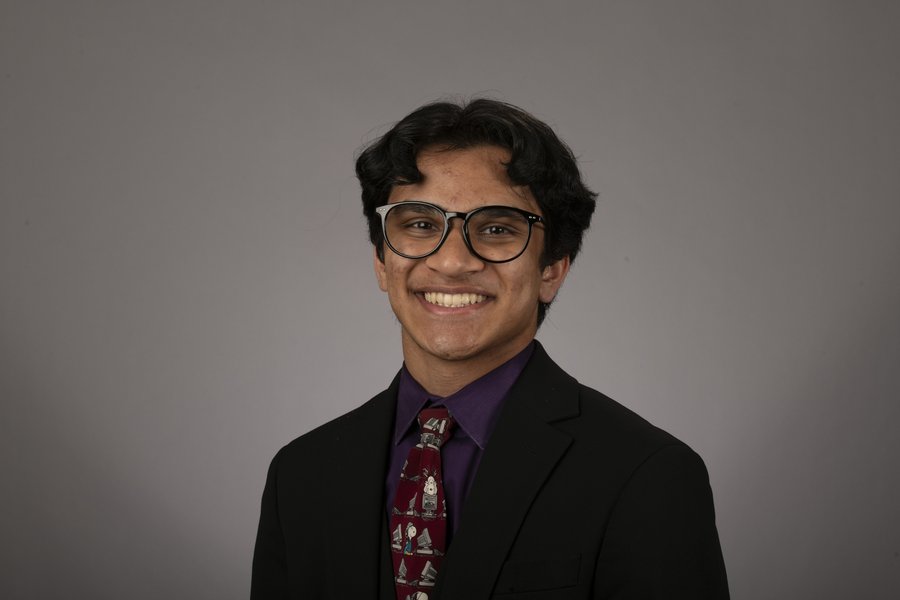First-time African American history, literature classes no longer offered due to lack of enrollment
May 23, 2020
Mary McLeod Bethune was one of the most influential African American educators and political activists of the 1900s. She was a successful businesswoman, a political advisor to President Franklin Roosevelt, a teacher who opened a boarding school to educate African American girls, the vice president of the NAACP from 1940-1955, the founding president of the National Council of Negro Women, and as director of the Division of Negro Affairs of the National Youth Administration, she was the first black woman to head a department of a federal agency.
Despite her lengthy list of accomplishments, Bethune, along with hundreds of other accomplished African Americans in U.S. history, is only briefly mentioned during Whitman’s Honors U.S. History unit on the progressive movement.
While Bethune is included in Whitman’s AP U.S. History course, the AP course description doesn’t include her as a prominent figure that the course has to cover. In fact, the AP curriculum mandates the course covers only one influential African American activist: Martin Luther King Jr. While most AP U.S. History classes discuss other African American figures, they aren’t required to.
However, Northwood High School’s African American history class covered Bethune and other pioneering African Americans in depth. The eye-opening class, once taught by social studies content specialist Tracy Oliver-Gary, brought students on a field trip to the headquarters of the National Council of Negro Women in D.C., where Bethune lived for a portion of her life. There, students learned about Bethune’s lasting impact.
For the first time at Whitman, social studies resource teacher Suzanne Johnson and English resource teacher Linda Leslie organized and planned to offer similar courses to Oliver-Gary’s, including an African American history course and African American literature course in the 2020-2021 school year. But Whitman administrators and counselors canceled both classes in early February due to a lack of enrollment; fewer than five students enrolled in each course.
Junior Lily Muchimba had planned to take the African American literature class next school year to fill in all the gaps she recognized in her own knowledge about African American history, she said.
“I just feel like it’s a complete shame that you don’t really get deeper into the topic about African American history or literature [in other classes],” Muchimba said.
MCPS has already developed and approved course descriptions and guidelines for both the African American history and literature courses. Currently, 13 high schools and one middle school offer African American history in MCPS, while Clarksburg High School offers African American literature.
To justify official allocation of a staff member to a class, Whitman requires student enrollment of at least 20 students for elective courses, a threshold neither prospective course met for next school year. The African American history class was “geared toward” juniors and seniors and hadn’t been advertised since the history department doesn’t actively promote history electives, Johnson said. By contrast, the English department advertised the African American literature course, also available for juniors and seniors, through flyers posted outside assistant principal Phillip Yarborough’s office and a presentation offered to parents in January about English courses and electives.
The literature course would have included African American novels, poetry, essays and biographies and may have included art and music, although the exact syllabus was not yet planned, Leslie said. Because both courses are electives, MCPS merely provides course descriptions for the classes, granting teachers a lot of freedom over the curriculum. Leslie wanted to modernize the existing guidelines by including texts written within the last 15 years, she said.
“I think the benefits of exposing yourself to voices that you don’t normally hear are impossible to measure,” Leslie said. “The more diversity, the more range of experience, the more range of voice, more range of style you can get in your literature and your exposure and your history and your voice, your perspective, the richer you are.”
Yarborough wants to better represent African Americans in school curriculums so that black students feel less isolated at Whitman, a majority white school; 68.8% of Whitman students enrolled for the 2019-2020 school year are white, according to the counseling department’s 2019-2020 profile, while only 3.5% of Whitman students are black. Students who see black and brown students portrayed in only one or very few ways would have been able to learn about different perspectives through the two classes, Yarborough said.
“There are a lot of contributions that black and brown folks have made in this country, a lot of things they’ve gone through,” Yarborough said. “People just don’t understand the history of that.”
Johnson said she was too new to the resource teacher position in her first couple of years to even begin the process of adding a course and had not yet mapped which other new courses to offer. To add a course to Whitman’s course bulletin, Whitman’s list of offered courses, resource teachers must submit a course request before early January, a deadline she did not meet in her first two years as a resource teacher.
The African American history class was first offered in Montgomery County in 1995, Oliver-Gary said. The 13 high schools that still offer the course include Walter Johnson, John F. Kennedy, Richard Montgomery, Winston Churchill, James Hubert Blake, Paint Branch, Clarksburg, Watkins Mill, Seneca Valley, Northwest, Montgomery Blair, Wheaton and Poolesville. Walter Johnson now offers African American history as a semester-long class, and history teacher Jeremy Butler, tailors the course around what he deems to be key topics and works in the field.
Butler explicitly focuses on more recent history because students especially enjoy recognizing historical figures who are still alive today, he said. Butler hopes that students who take the class have additional knowledge that empowers them in difficult race-related conversations, he said.
“In the traditional U.S. history class, you kind of learn that after the Civil Rights Movement, we had this groundbreaking legislation in the mid ‘60s, like the Civil Rights Act and the Voting Rights Act, and then mission accomplished: Racism was conquered, and now we’ve moved on.” Butler said. “So I tried to spend a lot of time on the post Civil Rights Movement, post Dr. King to try to help create a more realistic and urgent narrative.”
Oliver-Gary taught the same African American history at Blake, but she chose to include sociological lenses of study. Her students completed a project on the achievement gap, for instance, where they interviewed other students and parents in their community. Through this project, she aimed to teach students not only what the achievement gap is, but its effects and why it continues to exist. She incorporated the project into the curriculum because the achievement gap was a major topic of conversation at the school, Oliver-Gary said.
“If you learn about the history of something, it enables you to understand why people respond the way they respond,” Oliver-Gary said.
Senior Claude Noutak thought the African American history course would have helped open students’ minds and had hoped that students who weren’t African American would also enroll in the class. Junior Alissa Weisman, a white student, said she was interested in taking the African American literature course to get a unique perspective on a different culture.
Noutak anticipated that the classes would create spaces where students could talk about their experiences with race openly, like her own experiences where people have whispered or given her looks that make her feel as if she’s an outsider when she’s out in the Bethesda area.
Noutak hopes students taking the African American history and literature classes will gain awareness that will help reduce racism, she said.
“If we can teach these kids how to love other races, then we can create a more diverse community, and maybe the world wouldn’t be so separated all the time,” Noutak said.
Counselor Shalewa Hardaway, who spearheaded Whitman’s Black History Month assembly, said it’s important to learn African American history because it’s a part of American history. Hardaway guesses that the African American history and literature classes may not have had a high enrollment because students already had both required and elective classes in mind by the time each course was added to the bulletin, she said.
Leslie and Johnson both plan on offering the African American literature class and the African American history class again next year.
“I am a little bit sad that this class won’t be a thing,” Noutak said. “But I do hope in the future that we try again because I really think it would be beneficial to [our] school.”






